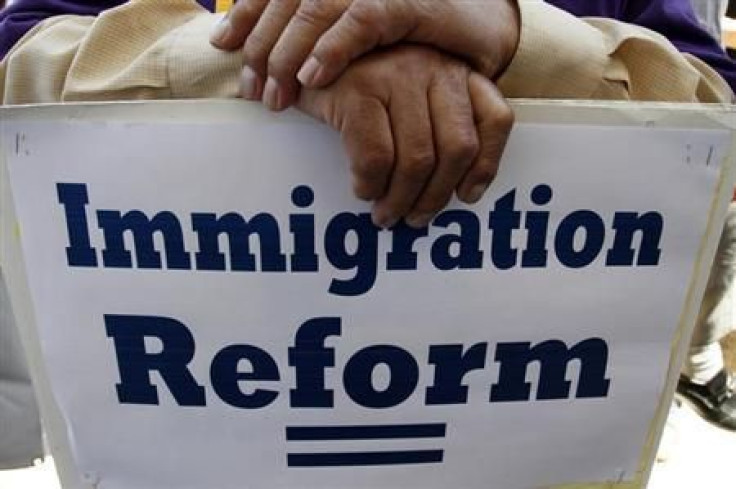
At 2 a.m. this morning, Senator Chuck Schumer (D-N.Y.) officially filed on the Senate floor the immigration reform bill created by the "Gang of Eight", a bipartisan team of senators tasked with working out a plan for the nation's immigration overhaul. The 844-page bill -- or the Border Security, Economic Opportunity & Immigration Modernization Act of 2013 -- will create a path to citizenship for millions of 11 million undocumented immigrants in the United States, grant an additional $3 billion to the Department of Homeland Security (DHS) for monitoring the US-Mexican border, establish new visa programs for high-skilled and low-skilled foreign workers, and institute a new requirement on employers for the verification of their employees' legal status.
It is likely that the bill's stipulations for border security will become the key piece, both in negotiations in the Senate as well as in the actual implementation of any plan that becomes law. The path to citizenship for the undocumented, which would take 13 years or longer for those currently residing in the US, will likely depend on a series of "triggers" -- the fulfillment of benchmarks affirming the security of the border before rights to permanent legal status and eventually citizenship are granted to the undocumented.
Within five years of the bill's enactment, the Department of Homeland Security must achieve "100 percent border awareness" and at least 90 percent apprehension rates in border zones where the number of people caught trying to cross annually exceeds 30,000. If these two goals are not reached, the DHS is required to create an alternate plan and reach them within 10 years.
Measures taken to assure the border's security will include fortifying fences, increasing staff on patrols and acquiring surveillance technology from the Department of Defense, including drones and drone pilots. $3 billion will be allotted to the DHS over the next 10 years as part of this project.
Border security has been a sticking point for conservatives. Some Republicans have criticized the bill, saying it gives amnesty to those who entered illegally. In a statement by Republican Senator Marco Rubio, who was part of the "Gang of Eight," Rubio defended the bill's provision holding out the possibility of citizenship for undocumented who entered the country before Dec. 31, 2011, saying the current situation amounted to "de facto amnesty."
Immigrants who seek citizenship would have to pay $2,000 in fines plus fees and outstanding taxes. Those with a felony conviction or more than three misdemeanors would be ineligible.
A bipartisan team of House Representatives said they would soon release a separate proposal for reform, though they also applauded the senators' effort as an important step forward. So far the group has worked on it in secret. The House team consists of Reps. Xavier Becerra (D-Calif.), Zoe Lofgren (D-Calif.), Mario Diaz-Balart (R-Fla.), Raúl Labrador (R-Idaho), Luis Gutiérrez (D-Ill.), John Yarmuth (D-Ky.), Sam Johnson (R-Texas) and John Carter (R-Texas).
© 2024 Latin Times. All rights reserved. Do not reproduce without permission.